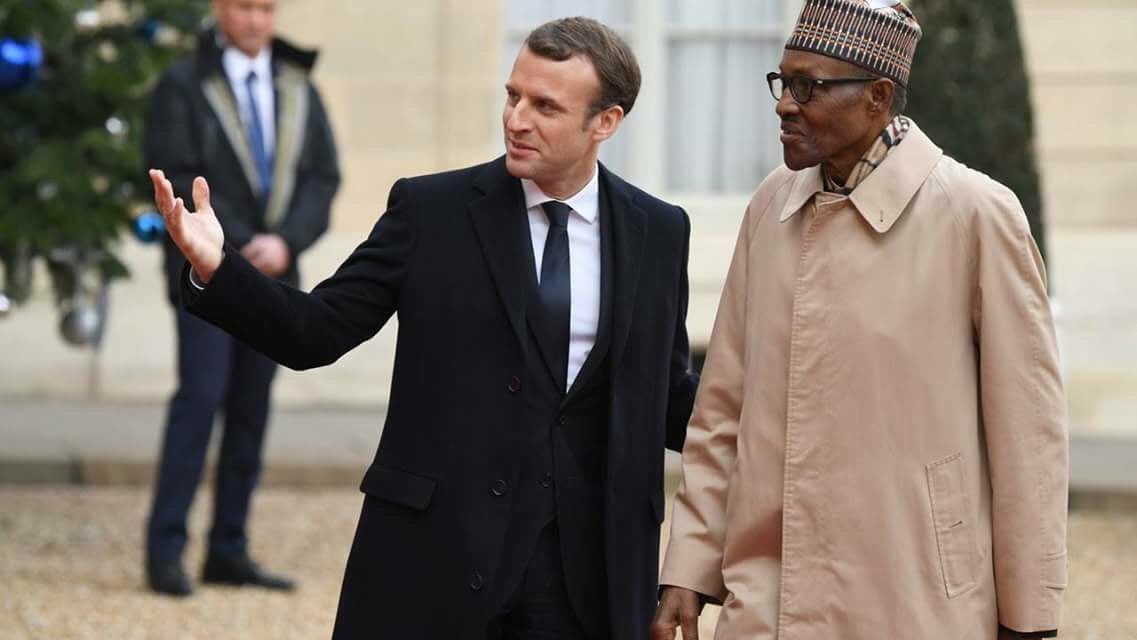France and the Ambazonian vigil at Nigerian Embassy in South Africa
For the past three weeks, an encampment of activists from Ambazonia, the English-speaking territory also known as Southern Cameroon, has been holding vigil outside the Nigerian Embassy in South Africa. The purpose is to demand the immediate release of leaders in their struggle with the French neo-colonial regime in Cameroon, and to shine a light on Nigeria’s betrayal of the Ambazonian people. In January 2018, Nigeria arrested and handed over several Ambazonian refugees to the Cameroonian regime, the second longest-running dictatorship in the world.
Cameroonian authorities have since announced that among those Nigeria handed to them was Sisiku Julius Ayuk Tabe, regarded by millions of Ambazonians as their political representative in the struggle for their basic human rights. Ambazonia has been under military occupation by Cameroon since 1961, and, all this time, the people have been struggling for basic human rights and dignity. Tensions rose sharply in October 2016 in response to a strike by legal workers to defend the Ambazonian common law–based judicial system from the Cameroonian regime’s attempt to replace it with a French colonial court system.
In response, the Cameroon military used force. They deployed helicopter gunships to shoot live ammunition at protesters, executed hundreds and detained more than a thousand summarily and without charge. In direct response, some factions of Ambazonians have chosen to defend their communities with force. These acts have created a wave of refugees crossing the border to Nigeria in fear for their lives.
The UNHCR had registered 20,291 refugees as of March 8; community leaders on the ground count close to 60,000. Ayuk Tabe and 11 other Ambazonian leaders, who were betrayed by the Nigerian government, had gathered at the Nera Hotel, Abuja to plan a meeting with the UNHCR on the plight of the refugees when they were arrested. Nigeria’s handing over of these activists to Cameroon, clearly done under pressure from France, was a violation of the principle of non-refoulement, a fundamental pillar of international humanitarian law, which forbids a country receiving asylum seekers from returning them to a country in which they would be in likely danger of persecution. It has drawn rebuke from Amnesty International, the UNHCR, and even the US Department of State. Moreover, it constituted a devastating attack on the survival of the Ambazonian people.
Ayuk Tabe has recently emerged as a unifying figure that commands the respect and confidence of the Ambazonian community. This betrayal on the part of the Nigerian government is not just injurious to the Ambazonian people. In fact it is deeply harmful to Nigeria as well, and should be read as the most overt display yet of France’s calculated conquest of the whole of Africa.
Nigeria has always been the crown jewel of the French project to re-conquer all of Africa. Through a combination of underhandedness, blackmail and influence peddling ,France has meddled in Nigeria affairs since the eve of her independence. When the Biafran war broke out in 1967, France positioned itself as its international champion — serving as the main supplier of weapons and mercenaries to the Biafran army and declaring “Biafra Week” on March 11-17. Yet France declined to formally recognize Biafra — which was what they needed the most in their struggle.
Having blackmailed their way into huge oil concessions from the northern-dominated federal government with their support for Biafra, France then switched sides and betrayed the Biafrans to government. The spoils of this act were demonstrated four years after the defeat of the Biafrans, when a French oil company emerged as the biggest winner in the 1974 issuing of new oil leases by the Nigerian government. Today, some French institutions and operatives play an oversize role in the Nigerian oil and gas industry. Observers are not surprised that Nigeria is slowly becoming France’s gendarme in Africa. Evidence of this lies in the disjuncture between Nigeria’s response to Cameroon and Equatorial Guinea, vs. to Côte d’Ivoire. Nigerian political leadership has never found the courage to criticise electoral fraud in Cameroon and Equatorial Guinea, two French clientele regimes to Nigeria’s immediate eastern and south-eastern borders which can boast of the world’s longest-running and second longest-running dictatorships in the world. The forcible return of the Ambazonian prisoners, including Ayuk Tabe, is in keeping with this behavior.
French oil interests are the driving factor in the move to squelch the movement for human rights in Ambazonia. Were it to gain the attention it deserves, more than just Ambazonians would raise their voices for their fair share of the profits reaped by the French extraction industry in Africa.
Source: Vanguard Nigeria





